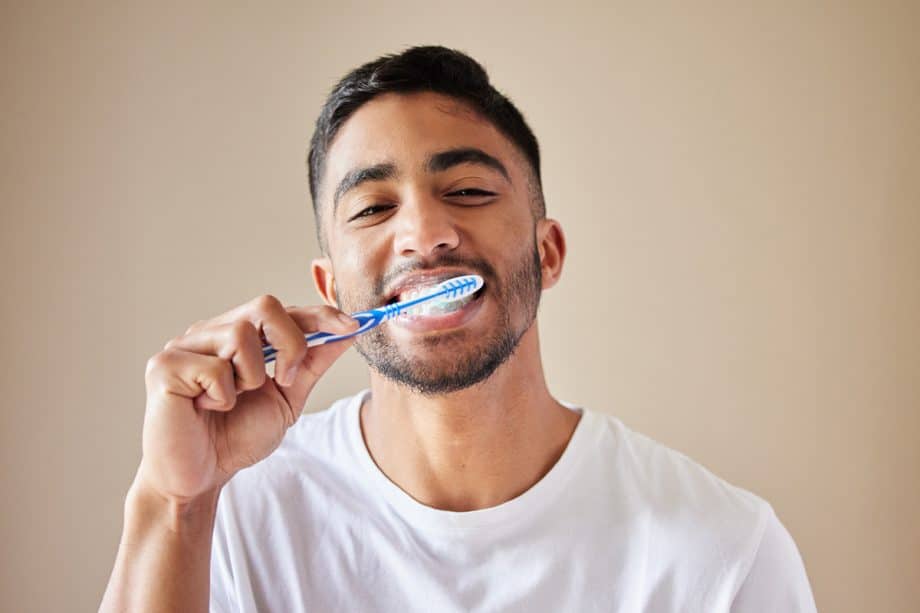Brushing our teeth is something most of us have done daily since childhood. But just because it’s a routine part of our day doesn’t mean we’re all doing it correctly. Proper brushing technique is essential, not just for preventing cavities or maintaining fresh breath, but also for keeping our overall oral health in optimal condition. At Upper West Side Oral & Maxillofacial Surgery, we believe that maintaining a strong dental care regime at home is one of the most effective ways to prevent oral health issues down the line.
If you’ve ever wondered whether you’re brushing as effectively as you could be, you’re not alone. Many patients ask us about proper brushing habits, and we’re here to break down everything you need to know.
Are You Using the Right Technique?
While it might seem straightforward, brushing your teeth involves more than just moving the brush back and forth. The American Dental Association recommends the following technique for the best results:
- Hold your toothbrush at a 45-degree angle to your gums. This allows the bristles to reach under the gumline without causing irritation.
- Use short, gentle strokes. Brushing with too much pressure or in a side-to-side motion can wear away enamel and damage your gums.
- Don’t forget all surfaces. This includes the outer, inner, and chewing surfaces of your teeth. For the front teeth, it’s best to tilt the brush vertically and use gentle up-and-down motions.
If you aren’t sure whether you’re brushing correctly, take a moment to observe your technique in a mirror. You’d be surprised how little adjustments can make a big difference!
Are You Brushing Long Enough and Often Enough?
How long we brush is just as important as how we brush. Studies suggest that the ideal time to brush your teeth is around two minutes, with 30 seconds dedicated to each quadrant of your mouth. Use a timer or an electric toothbrush with a built-in timer to ensure you’re not rushing through it.
It’s equally important to brush at least twice a day. Once in the morning and once before bed are non-negotiable. Nighttime brushing is especially critical because it helps remove plaque buildup and debris from the day, which otherwise lingers on teeth while we sleep.
Are You Using the Right Tools?
Your choice of toothbrush and toothpaste also significantly impacts your oral health:
- Toothbrush: Use a toothbrush with soft bristles, as harder ones can damage both your gums and enamel over time. Opting for an electric toothbrush can also be a game-changer, as they’re shown to remove plaque more effectively than manual ones.
- Toothpaste: Fluoride toothpaste is your best friend when it comes to strengthening enamel and preventing cavities. There are many specialized options available for different needs, such as sensitive teeth or whitening.
And remember to replace your toothbrush or toothbrush head every three to four months, or sooner if the bristles are visibly frayed. A clean, fresh brush ensures you’re not reintroducing bacteria into your mouth and maximizes its effectiveness.
Beyond Brushing
Even if you have stellar brushing habits, it’s important to incorporate additional oral hygiene practices into your routine. Flossing daily and using mouthwash can help remove plaque and bacteria from areas your toothbrush can’t reach. The combination of brushing, flossing, and rinsing is essential for overall oral health, promoting not just clean teeth but healthier gums and fresher breath too.
Maintaining a healthy mouth is integral to maintaining overall health. Research continues to connect oral health to broader wellness, with implications for conditions such as heart disease and diabetes. You can read more about the connection between oral health and overall health on our website. Proactive care and proper brushing habits are small steps that greatly contribute to a healthier future.
Frequently Asked Questions About Oral Health and Wellness
What type of toothbrush is best for people with sensitive gums?
For sensitive gums, it’s best to use a toothbrush with ultra-soft bristles. Electric toothbrushes with settings for sensitive teeth are also an excellent option, as they provide gentle yet effective cleaning. Additionally, pair your toothbrush with a toothpaste designed for sensitivity to help soothe irritation and protect your gums.
Can improving my oral hygiene impact my overall health?
Yes, absolutely! Poor oral health has been linked to various systemic issues, including heart disease, diabetes, and respiratory infections. Keeping up with healthy oral hygiene habits, such as proper brushing, flossing, and regular dental checkups, can lower the risk of developing these conditions and ensure your overall health stays on track.
At Upper West Side Oral & Maxillofacial Surgery, we don’t just focus on oral health; we’re committed to enhancing your overall wellness. Whether you’re due for a dental procedure or seeking expert advice, we’re here to support your unique needs. Schedule an appointment today to ensure you’re taking the best possible care of your smile.


